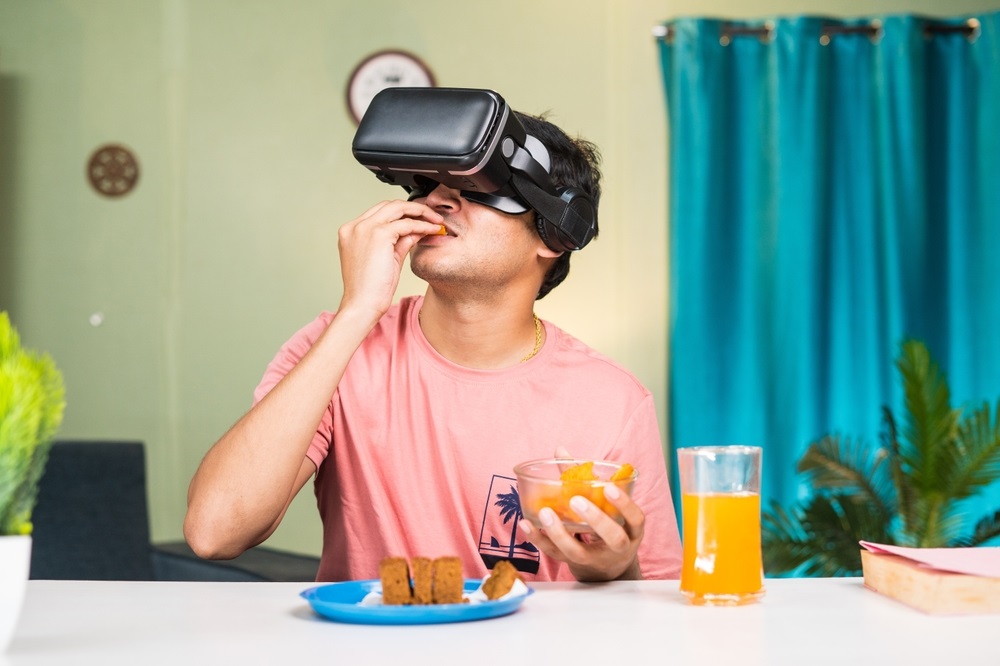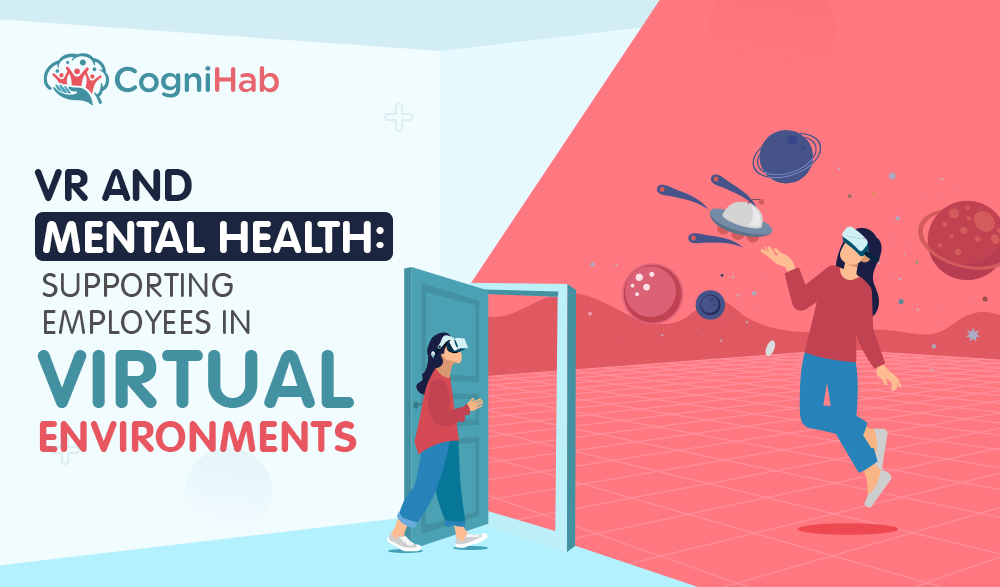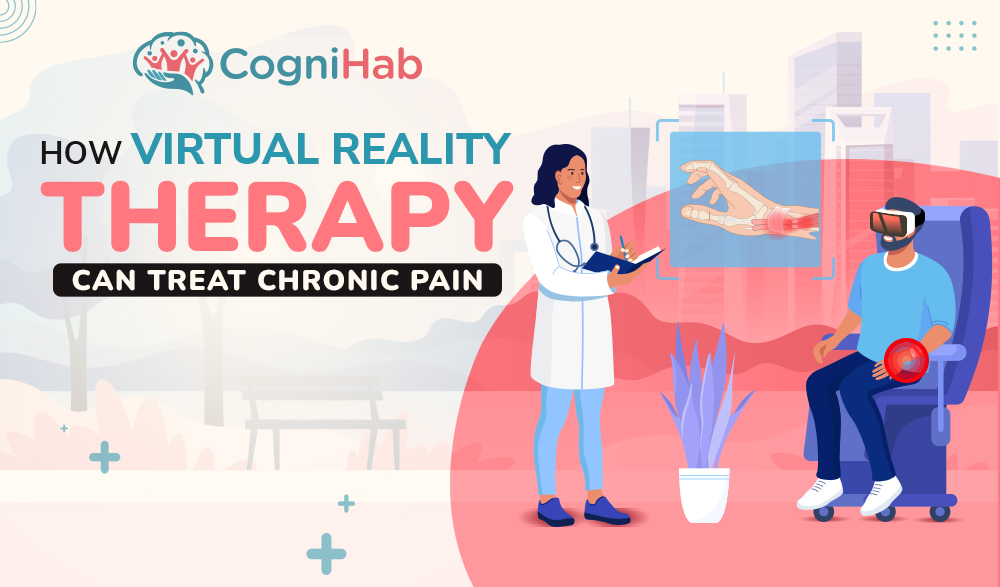Role of VR Rehabilitation in Mental Health
Rehabilitation therapy is an assemblage of intercession required when a person is undergoing or presumably is about to experience impediments in regular functioning, due to a number of circumstances like chronic diseases or impairments, ageing, injuries, and trauma.
The purview of its necessity extends considerably from physical limitations like moving around post a stroke or trauma to mental and cognitive difficulties like seeing, hearing, communicating, etc.
Rehabilitation therapy empowers individuals to maintain or return to everyday life activities, lately, with an 18% increase in the pervasiveness of non-communicable diseases, a surge in the need for such therapy is observed all around the world.
VR Rehabilitation in Mental Health
According to The World Health Organization, 450 million people globally are affected by mental disorders. One in four people in the world will be affected by mental disorders at some point in their lives.
Mental disorders are among the leading causes of ill-health and disability worldwide. Virtual reality is being implemented by healthcare sectors to redefine the realm of traditional healthcare and its procedures to help both the patients and health care experts alike. Therefore, Virtual reality rehabilitation is an experimental treatment in mental health.
Several kinds of research have shown that virtual reality can help patients to cope up with certain phobias, can be helpful in treating post-traumatic stress disorder, aid people with psychotic disorders so that they experience relatively less paranoia and anxiety in social gatherings and public places by reducing social anxiety with stress with virtual reality.
Virtual reality for mental health is now widely available as a treatment with the rise of affordable VR headsets. This is paving the way for an increased opportunity to incorporate virtual reality enabled treatment for mental health disorders. The rise in affordability and user-friendly devices are allowing more people to benefit. We will discuss how virtual reality is helping patients to deal with certain mental health disorders.
● Post Traumatic Stress Disorder
The symptoms of post-traumatic stress disorder include insomnia, fatigue, bipolar disorder, etc. Virtual reality rehabilitation for dealing with post-traumatic stress disorder has been proved to be a more effective treatment than treatments like psychotherapy, medication, etc. The reason for its success is, virtual reality rehabilitation adopts the practice of exposure therapy.
In exposure therapy, patients are exposed to their traumatic incidents and experiences repeatedly, though in a controlled environment, under the guidance and supervision of experts.
This gradual process of exposure therapy eventually leads to a state of stability. Patients no longer fear or become anxious when they are exposed to the traumatic experience as the repeated exposition helps to reduce the stress and panic attacks associated with the trauma and to cope up with it.
The symptoms of post-traumatic stress disorder include insomnia, fatigue, bipolar disorder, etc. Virtual reality rehabilitation for dealing with post-traumatic stress disorder has been proved to be a more effective treatment than treatments like psychotherapy, medication, etc.
The reason for its success is, virtual reality rehabilitation adopts the practice of exposure therapy. In exposure therapy, patients are exposed to their traumatic incidents and experiences repeatedly, though in a controlled environment, under the guidance and supervision of experts. This gradual process of exposure therapy eventually leads to a state of stability.
Patients no longer fear or become anxious when they are exposed to the traumatic experience as the repeated exposition helps to reduce the stress and panic attacks associated with the trauma and to cope up with it.
It has been noticed that the sensory and immersive nature of virtual reality helps these patients to feel better, faster than conventional methods of simply describing the trauma.
● Phobias and Anxiety Disorder
Virtual reality rehabilitation in mental health therapy has been used in clinics for the treatment of phobias and other anxiety disorders. Anxiety disorders affect a large number of the population globally.
Patients who adopted virtual reality rehabilitation treatment for mental health disorders, have reported to experience lower levels of depression, anxiety, and other negative symptoms than the standard treatment.
● VR for Depression
Depression can be treated, as there are effective treatments for moderate and severe depression. Virtual reality is an accessible consumer-targeted technology, which is used in the treatment of depression. Healthcare providers offer cognitive behavioural therapy for depression, which is incorporated in the virtual reality modality for a positive outcome.
Virtual reality provides unique experiences such as alternative embodiment and virtual pet interaction, which can be extremely therapeutic in the treatment of depression and anxiety and have a great potential in dealing with mental health issues and well-being.
Virtual Reality Mental Health Training
Virtual reality is a clinically proven and appropriate treatment for mental health training. It provides unparalleled, personalised experiences that can be incorporated in antidepressant treatments.
Consumer-targeted and user-friendly virtual reality rehabilitation interventions based on therapeutic techniques are proven to have colossal potential to enhance the efficacy of mental health treatment and training. It will allow them to render appropriate treatment by improving patient outcomes.
Therefore, the potential of VR to help assess mental health conditions and virtual reality-based mental health training can influence public mental health positively.
VR Rehabilitation in Healthcare
Emerging as the need of the hour is Virtual Reality Rehabilitation, a virtual mode of rehabilitation has been proven to be effective in recent times, it is now being used for psychological or occupational therapy.
Patients who are availing of virtual reality therapy are asked to maneuver through a simulated digital interface and systematically complete assigned tasks that are customized with precision to treat a certain ailment.
The technological configuration is comprehensive and can range from a standard desktop to a more contemporary virtual reality headset. This mode of therapy has proven to be especially effective in treating PTSD and is now being considered as a substitute for exposure therapy as well. Virtual reality for stroke rehabilitation initiatives has also been fruitful, as it has been used to help stroke patients regain muscle control.
Companies like Cognihab have been developing therapeutic virtual reality-enabled applications and treatments for mental health. Cognihab has been working with clinicians, experts, healthcare providers to create an affordable, yet effective treatment of a host of pertaining mental health issues.
Their next-generation VR-based solutions include a relaxation and meditation experience that induces a sense of calmness by reducing stress and controlling fear generated from phobias.







